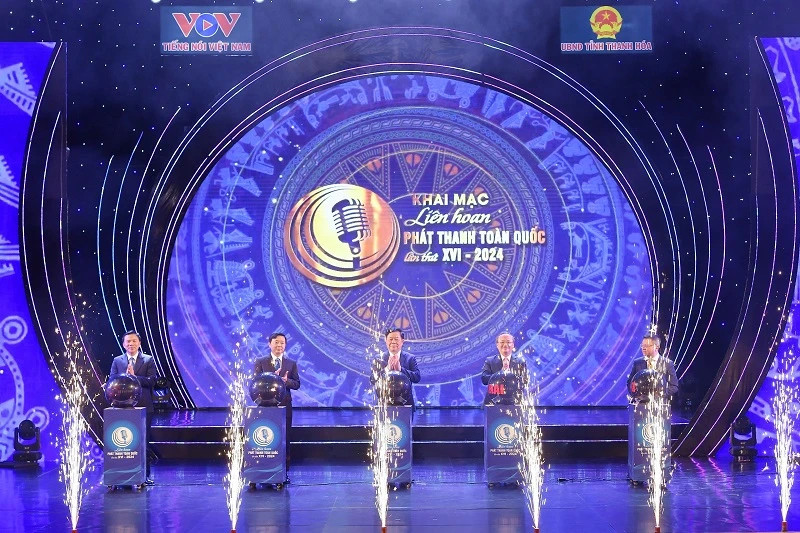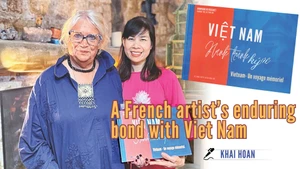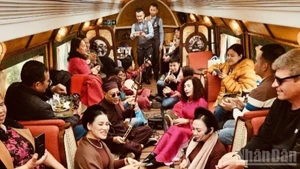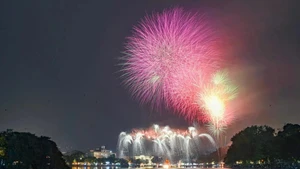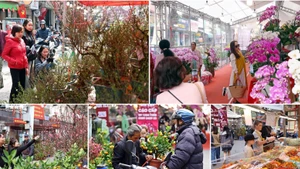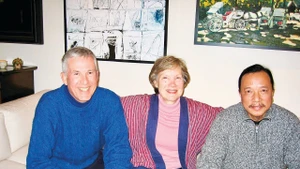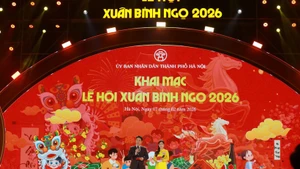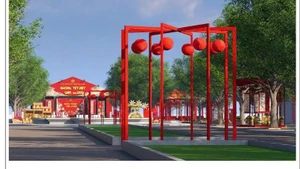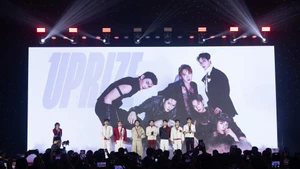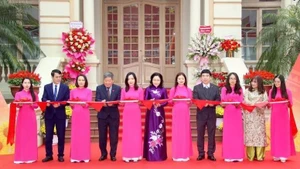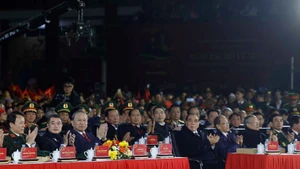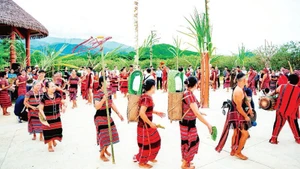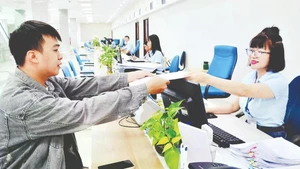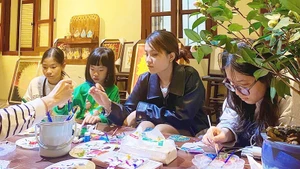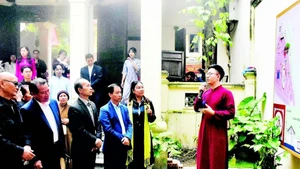The event was attended by Nguyen Trong Nghia, Politburo member, Secretary of Party Central Committee (PCC) and Head of the PCC’s Commission for Communications and Education; and Tran Hong Ha, member of the PCC and Deputy Prime Minister.
The National Radio Festival is a biennial professional activity of the Vietnamese radio industry aimed at discovering and honouring outstanding authors and works by radio journalists across the country. It is also an opportunity for journalists, editors, and reporters to exchange, learn, and improve their professional skills while contributing to enhancing the quality of radio programmes.
Addressing the opening ceremony for the16th National Radio Festival, Politburo member Nguyen Trong Nghia affirmed that over its nearly 80 years of construction and development, the Voice of Vietnam (VOV) and the radio industry in general have made significant contributions. Faced with the robust development of communication technology, the expansion of media space, and the increase in new forms of press and media, the radio industry has been increasingly affirming its position and role as a sharp ideological weapon, a leading and guiding information channel, and a forum for public participation in social oversight, critique, and management. It has been also a reliable bridge between the Party, State, and people, thus contributing to social consensus and strengthening people’s trust in the Party and the State.
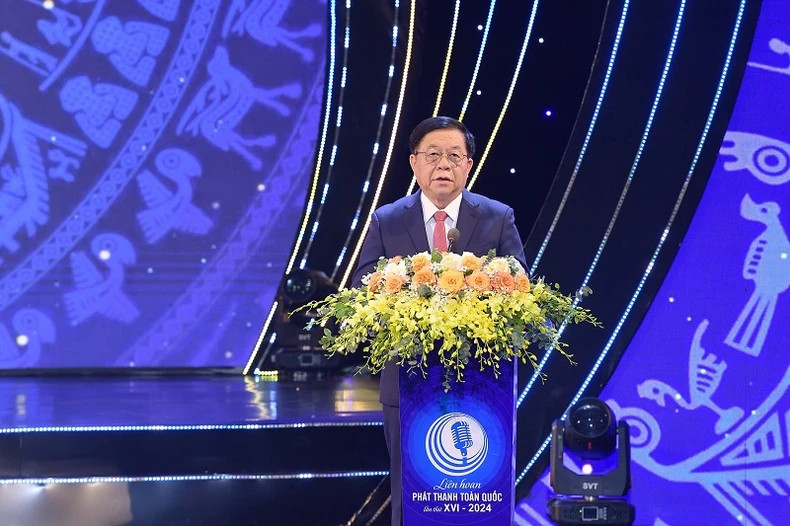 |
| Politburo member Nguyen Trong Nghia speaks at the ceremony. (Photo: Ha Phuong) |
To further promote the achievements and results attained, overcome existing shortcomings and limitations, seize opportunities, overcome difficulties and challenges, and enhance the role and position of the radio industry in the new era to meet the practical demands and requirements, Nghia asked workers in the radio industry to focus on implementing five key areas.
Firstly, it is crucial to maintain a grasp of the Party's and State's guidelines, policies, and strategies. Secondly, the radio industry should be more proactive, timely, and creative in information dissemination and propaganda work. Thirdly, the radio system from the central to local levels must actively play a role in guiding and leading information, contributing to the unity of thought, will, and action, as well as social consensus. Fourthly, great attention must be given to the training and development of a team of journalists and reporters with strong political integrity, professional expertise, and high ethical standards. Finally, it is essential to research and effectively implement a comprehensive digital transformation strategy in the radio field.
"The radio industry in the digital age is not just about changes in transmission infrastructure or broadcasting platforms, but also about changes in mindset, thinking, and professional practices. We must consider this the top priority and a breakthrough step for sustainable development,” said the Head of the PCC’s Commission for Communications and Education.
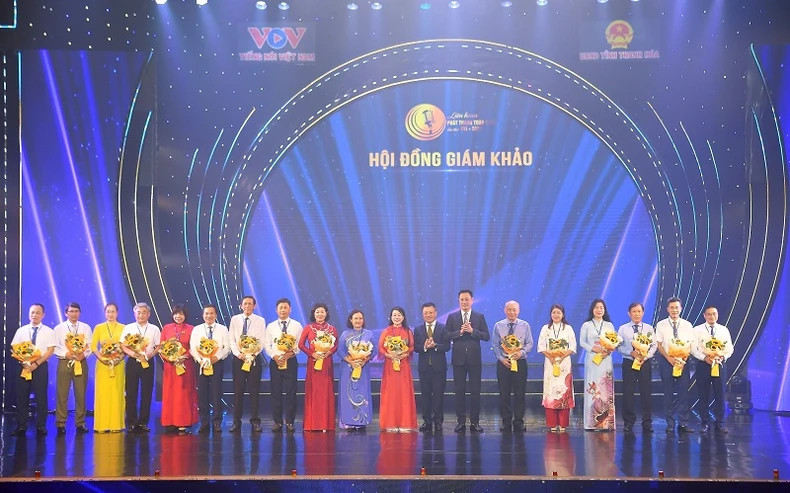 |
| The organising committee presents flowers to the jury. (Photo: HA PHUONG) |
The 16th National Radio Festival (2024) is taking place from July 9 to 13, attracting the participation of 81 units with 380 works in six categories: reportage, specialised programmes, interviews, ethnic language radio programmes, radio stories, and live radio programmes. The organising board will grant awards for five events including digital platform application, podcast, excellent technical setup, golden voice, and outstanding host. After the preliminary round, the jury selected 228 works for the final round.
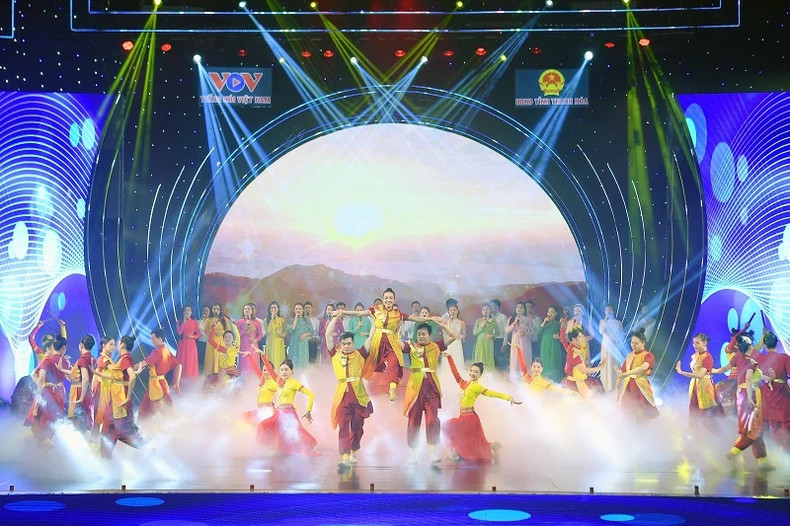 |
| An art performance at the opening ceremony. (Photo: HA PHUONG) |
During the festival, the professional, cultural, and sports activities will be held, creating a forum for Vietnamese radio professionals to interact, meet, and share experiences, including an international workshop themed "Digital Transformation in Radio: International and Vietnamese Practices”, the 9th exchange for Cheo (Vietnamese traditional opera) lovers (2024), and a running race.
